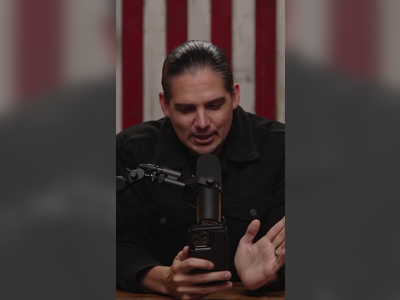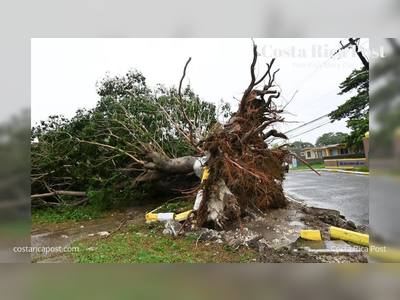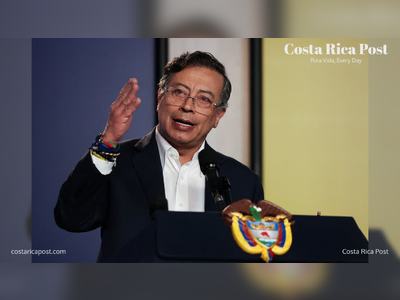Nancy Pelosi Finally Announces She Will Not Seek Re-Election, Signalling End of Long Congressional Career
At age 85, the former Speaker of the U.S. House says she will retire after her current term, opening the way for a generational shift in California’s Democratic politics.
In a video address released on November 6, 2025, Representative Nancy Pelosi of California announced that she will not run for re-election in 2026, thereby concluding a nearly four-decade tenure in Congress when her current term ends in early 2027.
Pelosi, 85, first entered the U.S. House of Representatives in 1987, representing San Francisco and its surrounding area, and rose to become the first woman to serve as Speaker of the House.
Her two tenures as Speaker spanned 2007–2011 and 2019–2023, during which she helped guide major legislation such as the Affordable Care Act and played a central role in congressional oversight of the Trump administration.
In her address, Pelosi expressed gratitude to her constituents and emphasised the importance of civic participation, saying: “San Francisco, know your power.
We have made history”.
Her decision comes at a moment of change within the Democratic Party.
With her departure, a long-standing figure of congressional leadership steps aside, leaving a field of potential successors in the liberal heart of California.
Politicians such as Scott Wiener and Saikat Chakrabarti have already declared or signalled interest in vying for her seat in the state’s 11th congressional district.
Pelosi’s announcement follows the approval of California’s Proposition 50, a redistricting measure designed to bolster Democratic representation ahead of the 2026 mid-term elections—an effort Pelosi had supported.
Reactions across political lines were swift: Democratic colleagues praised her leadership and legacy, with Minority Leader Hakeem Jeffries calling her “the greatest Speaker of all time”.
Meanwhile, President Donald Trump—though not engaged in the same era of direct working partnership—welcomed the news, calling her retirement “a great thing for America”.
While Pelosi stated she will finish her current term rather than step down immediately, her decision still marks a symbolic end of an era in Washington.
Her departure underscores an inflection point: a seasoned leader making way for fresh voices, and a reminder that even powerful figures in politics must plan legacies and successions.
As the 2026 election cycle approaches, Pelosi’s district—traditionally a Democratic stronghold—will become a focus point of both internal party dynamics and generational renewal.
The race to succeed her is already underway, and the outcome will likely be seen as an early indicator of the party’s direction in the years ahead.
Pelosi, 85, first entered the U.S. House of Representatives in 1987, representing San Francisco and its surrounding area, and rose to become the first woman to serve as Speaker of the House.
Her two tenures as Speaker spanned 2007–2011 and 2019–2023, during which she helped guide major legislation such as the Affordable Care Act and played a central role in congressional oversight of the Trump administration.
In her address, Pelosi expressed gratitude to her constituents and emphasised the importance of civic participation, saying: “San Francisco, know your power.
We have made history”.
Her decision comes at a moment of change within the Democratic Party.
With her departure, a long-standing figure of congressional leadership steps aside, leaving a field of potential successors in the liberal heart of California.
Politicians such as Scott Wiener and Saikat Chakrabarti have already declared or signalled interest in vying for her seat in the state’s 11th congressional district.
Pelosi’s announcement follows the approval of California’s Proposition 50, a redistricting measure designed to bolster Democratic representation ahead of the 2026 mid-term elections—an effort Pelosi had supported.
Reactions across political lines were swift: Democratic colleagues praised her leadership and legacy, with Minority Leader Hakeem Jeffries calling her “the greatest Speaker of all time”.
Meanwhile, President Donald Trump—though not engaged in the same era of direct working partnership—welcomed the news, calling her retirement “a great thing for America”.
While Pelosi stated she will finish her current term rather than step down immediately, her decision still marks a symbolic end of an era in Washington.
Her departure underscores an inflection point: a seasoned leader making way for fresh voices, and a reminder that even powerful figures in politics must plan legacies and successions.
As the 2026 election cycle approaches, Pelosi’s district—traditionally a Democratic stronghold—will become a focus point of both internal party dynamics and generational renewal.
The race to succeed her is already underway, and the outcome will likely be seen as an early indicator of the party’s direction in the years ahead.










